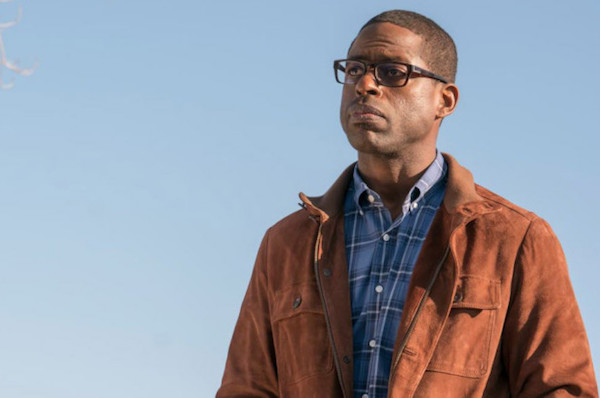
[I] love “This Is Us.”
Not because I think it’s corny, or over the top. I don’t watch it ironically. I love it with a complete and total earnestness. That is what it deserves.
Because NBC’s “This Is Us” is one of the only shows on television that honestly explores the ongoing nature of grief.
Each episode deals with a cast of characters who are still mourning the loss of their father, Jack Pearson, who died 20 years ago. The episode after the Super Bowl finally revealed Jack’s cause of death. Spoiler: It was that he ran back inside his family’s burning house to save his daughter’s dog and suffered a heart attack from smoke inhalation. A stunning 27 million viewers tuned in.
The show’s creator Dan Fogelman tweeted that, “My mom died 10 years ago, unexpectedly. It’s the hinge upon which my life swings. Jack’s death is the Pearson hinge. We look back. We move forward. That’s our collective journey.”
That attitude is quietly revolutionary in a country that doesn’t like to dwell on death, let alone the sadness it provokes. America exists in stark contrast to other cultures like Mexico, where the Day of the Dead is celebrated, or China, whose Qingming Festival is intended to remember ancestors who’ve passed away. In America, we’re expected to move tidily through the stages of grief and then not talk about our loss too much anymore.
Ongoing grief doesn’t fit with American ideals about being strong and resilient.
That doesn’t mean it doesn’t exist. According to Psychology Today, many people are incapacitated by grief. It notes, “approximately 10 to 20 percent of bereaved persons have severe enough, unremitting reactions to loss that result in a complicated grieving process that may require treatment.” When you consider that “8 million people suffered through the death of someone in their immediate family last year,” according to the National Mental Health association, that makes for a lot of powerfully bereaved people out there.
Teens — as the children in “This is Us” were at the time of their dad’s death — can be struck especially hard. An essay in Social Psychiatry on “Suicide following bereavement of parents” found that there is five times greater risk of suicide in teens following the loss of a parent.
For the most part, the Pearsons on “This is Us”s seem to have resumed their lives. But anyone who has lost a loved one can tell you that you don’t just grieve for a limited amount of time and then go back to “normal.” The normal that existed prior to that loss is gone. You can grieve on the days you expect (like Jack’s wife, played by Mandy Moore, who makes his favorite dinner each year on the anniversary of his death), but you can also be hit unexpectedly by it (as happens to Jack’s now-adult daughter Kate when she considers adopting a dog).
In a culture where death is often a taboo topic, “This Is Us” is a show that can get people talking about it.
You can see people on Twitter responding to the episode about Jack’s death by saying, as @littlestgrey did:
“Jack’s conversation w Rebecca about not being in the ground was almost word for word the conversation my Grandma had with me. Have I mentioned how cathartic this show is?”
Or, like @Kab_Fair, who tweeted:
“my mom died when I was young and I carry her with me every day, I think that is the message of This Is Us, she’s never gone, just physically unknown to those who occupy my life today.”
“This Is Us” does something incredibly valuable in showing us that it is OK to be sad. The characters in the show are able to grieve, but they’re also able to partake in life’s many joys.
It’s nice to see that, now that Jack’s death has been revealed, the show will go on to explore how the death of Jack’s brother in Vietnam affected him. And it will probably end up making us cry all over again.
On the show and his own grief Fogelman tweeted, “Sad? Yes. But when you look through a wide enough lens — it’s also outrageously beautiful.”
To grieve is to have known love.
The characters are dealing with a deep sadness that almost all of us will eventually experience. That’s true whether or not we want it to happen, and whether or not we want to talk about it. To experience loss is, as the show’s creator says, our collective journey.
Complete Article ↪HERE↩!
